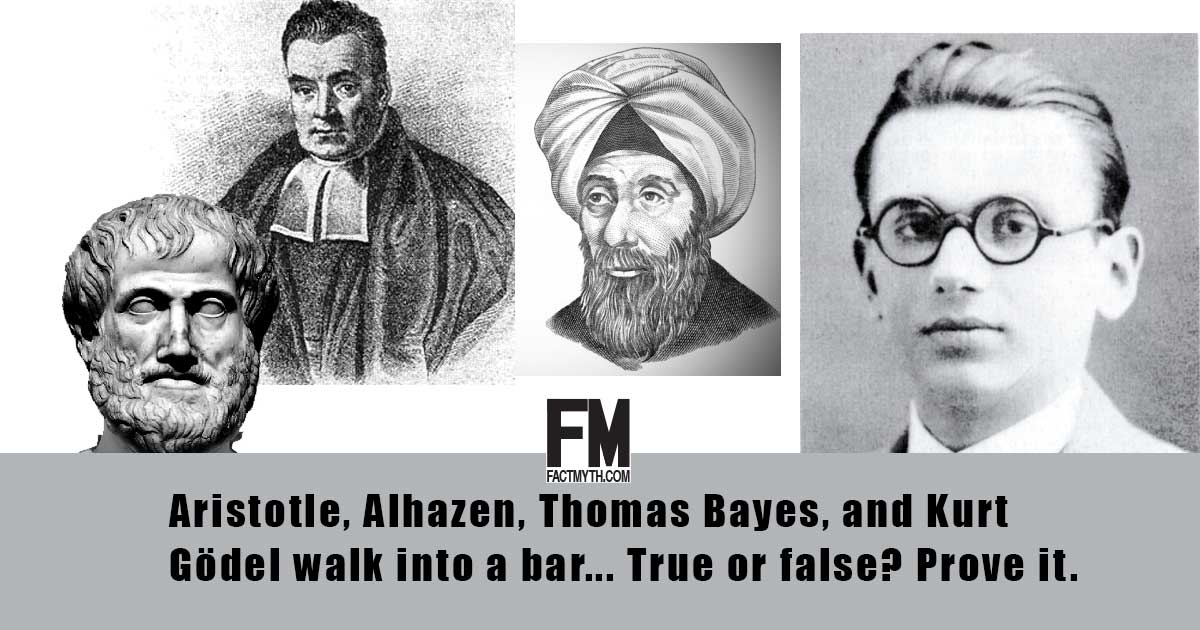The Difference Between Truth and Facts

Opinions and Insight on Truth and Facts
Truth and facts have a lot in common, but they are not exactly the same. Truth is something that is the case. Facts are true statements. Truth is best described using facts and logical reasoning.[1][2]
Here is an example of facts pointing to truth by way of logical reasoning:
- All Men are mortal.
- Bill Gates is man.
- Therefore Bill Gates is mortal.
“All men are mortal” is a fact, “Bill Gates is a man” is a fact, and the logical conclusion is “Bill Gates is a man.”
All those statements are facts, all those statements are true, all those statements are true facts. We reasoned using facts and landing on the truth, that Bill gates is a man.
Here is an example of facts pointing to an un-truth:
- All Men are mortal
- Superman is a man.
- Therefore Superman is mortal.
The first two statements are facts, and they are also true, but the conclusion is neither true nor a fact. It is a fallacy. We needed to specify that we meant men in the physical realm, not Hercules and Superman too! So a valid form of reasoning using facts led to an incorrect conclusion (it lead to an “un-truth”).
The problem here was that we didn’t have enough details, so our facts and logic didn’t lead us to truth.
Facts are these little truths, but they don’t have to be about true things and they don’t have to point to truth. In this sense, we need two different widgets to talk about the process of reason, logic, and truth-finding. So one widget is facts, the other is truth. Facts are true, but many facts can describe greater truths.
The reality is, something can also be true even if we can’t speak any facts about it. For example, we can’t know for sure what happens in a black hole, but whatever is happening can in theory be described with facts, and it is true that whatever is happening is happening.
Again, we need the concept of truth to have a word for that which is true but for which we don’t have enough facts to prove it!
It is also, again, super important to understand that just because we reason well and have facts… doesn’t mean our conclusions are true!
Superman’s weakness is kryptonite; true in comics, not on earth. The sun revolves around the earth; was thought to be true by many at one point, but wasn’t true in practice.
If many people agree the chair is a man, it does not make the chair mortal.
Just because Mr. Mustard was in the dining room with a candlestick does not mean he Murdered Mr. Green. This is true despite the facts, evidence, and logical inferences we can draw.
Bill believes the world is flat, and maybe Alice thinks so too, but that doesn’t make it true, right?
A fact is a type of truth, and all true statements are facts (even if they are just cleverly worded to make the statement true; e.g. not all men are mortal if you consider men in comics too).
However, just because a fact is a type of truth, it does not make facts and truths are exactly same thing. There could be truths we have no facts about, maybe Professor Plum murdered Mr. Mustard and we just don’t know it?
Some people tend to believe things that aren’t true, because they use a mix of valid and fallacious reasoning, and a mix of true facts and half-truths, to arrive at reasonable conclusions (often for emotional reasons). It can be hard to see this if you don’t take a microscope to truth and try to figure out the difference between truth, facts, factoids, half-truths, logic, reason, etc.
Is it that Truth can include belief and be debated? Some people describe the difference between truth and facts by saying that facts are empirical but truth can be debated and include belief. I would say I don’t agree. I would say facts are things that are true, and truth is something that is true. We present what we believe to be empirical and measured fact, and we are often likely right… but both truth and facts are only true truths and true facts when they are exactly true. Otherwise, if they are just beliefs or good attempts, then they are just that. They are good attempts and sincere feelings that we mistake for truth and facts. It is important not to adopt a word like true just because it helps validate some really strong feelings. There is no point in debating the truth. There is only point in debating to find the truth.
TIP: People think of things like “my truth.” So God is real and walks with me, that is “my truth.” We can’t verify this, but to you it is true. It is true that it is true to you, if you are being earnest. It is a fact it is to you. We don’t know if it is true or not. There is not much to argue about. It is your truth, but it is unknown if it is a truth.
- What is the difference between Fact and Truth? Philosophy.StackExchange.com.
- Truth and Facts: Some Reflections on Russell’s Logical Atomism Tom Ryckman. Lawrence.Educ.
